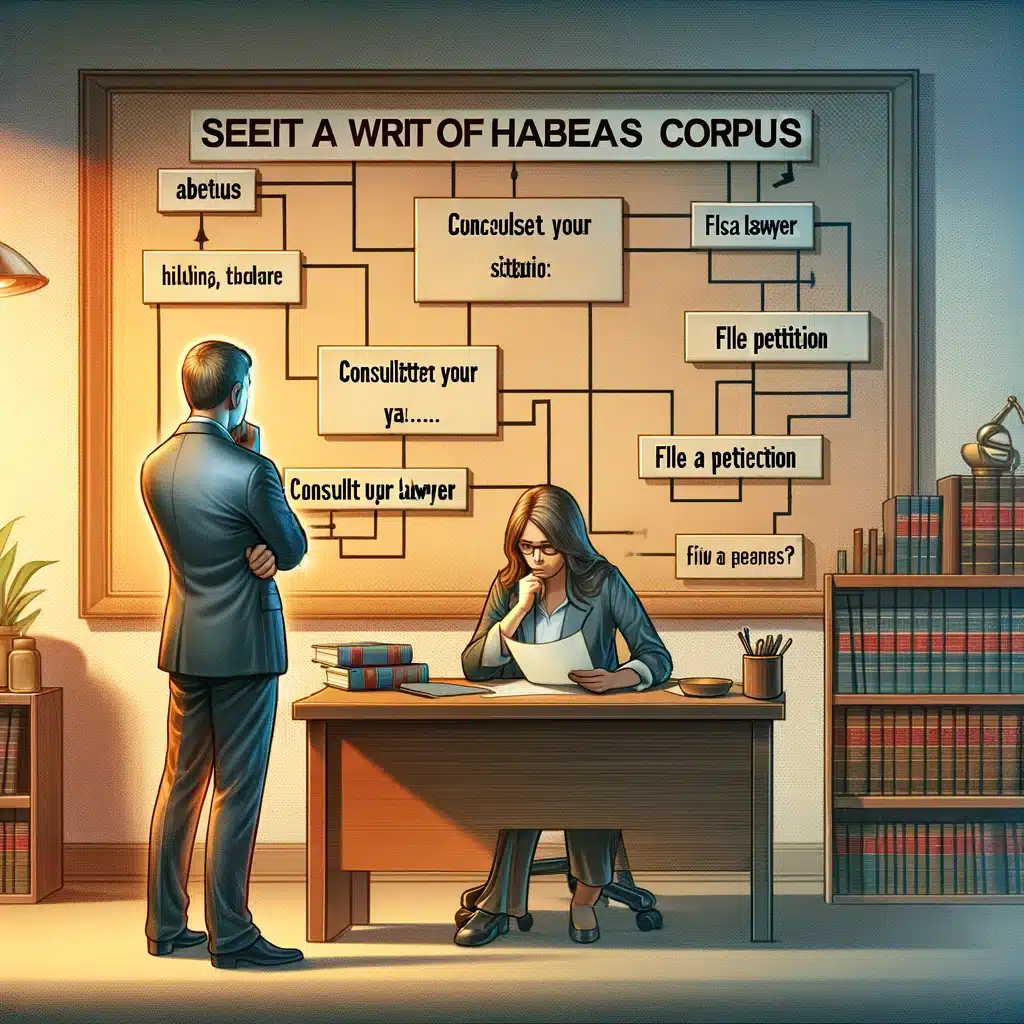Lawyer's Role in Declaring a Habeas Corpus Application Explained
Lawyer's Role in Declaring a Habeas Corpus Application Explained
Blog Article
The Ins And Outs of Declaring a Habeas Corpus Petition: A Guide for Looking For Post-Conviction Alleviation
Navigating the complexities of submitting a habeas corpus application is a crucial step for people seeking post-conviction alleviation. As one of the most complex legal solutions available, understanding the nuances associated with this process can make a significant difference in the end result of an instance. From recognizing the premises for filing to satisfying the strict step-by-step demands, each step requires precise attention to detail and a comprehensive understanding of the legal framework. By discovering the details of this important lawful tool, people can uncover prospective methods for challenging convictions and inevitably aim for fair outcomes.
Comprehending Habeas Corpus Requests
When seeking to recognize habeas corpus petitions, it is essential to grasp the essential legal concepts underlying this powerful lawful remedy (Lawyer). Habeas corpus, a Latin term meaning "you will have the body," is a lawful activity that permits individuals to look for alleviation from illegal detention or imprisonment. This centuries-old writ functions as a protect versus arbitrary state activity by providing a system for individuals to challenge the legitimacy of their arrest
The foundation of a habeas corpus petition is the assertion that the petitioner's civil liberties have actually been broken, causing their illegal apprehension. This can include insurance claims of due process offenses, inadequate aid of advice, recently found proof, and even jurisdictional mistakes. Habeas corpus petitions often develop in the context of criminal procedures, where people test the validity of their convictions or the conditions of their arrest.

Premises for Declaring
There are numerous lawful premises on which individuals may submit a habeas corpus application, each acting as a basis for challenging the lawfulness of their apprehension. These grounds normally consist of constitutional infractions, inefficient support of advise, freshly found proof, prosecutorial misbehavior, and administrative defects.
Constitutional violations create a typical basis for submitting a habeas corpus request, incorporating claims such as violations of the right to a fair trial, due process, or protection versus harsh and unusual penalty. Inadequate help of advise insurance claims emerge when an accused's lawful representation during the test or allure was so lacking that it threatens self-confidence in the end result. Newly uncovered evidence, if proven to be worldly and likely to change the end result of the situation, can likewise call for habeas relief. Prosecutorial misconduct involves unethical or unlawful conduct by the prosecution that prejudices the defendant's civil liberties. Ultimately, jurisdictional problems may arise when the court that convicted the individual lacked the authority to do so, giving a basis for challenging the apprehension with a habeas corpus application.
Procedural Needs
Recognizing the step-by-step demands for filing a habeas corpus petition is necessary for guaranteeing that the lawful procedure is adhered to properly and successfully. One fundamental procedural need is the fatigue of state solutions. This means that prior to a government court can take into consideration a habeas corpus request, the petitioner has to have first presented the cases in state court and went after all offered avenues of alleviation. Failure to wear down state treatments can result in the federal court disregarding the application.
Additionally, there are stringent time frame for submitting a habeas corpus petition. The Antiterrorism and Effective Fatality Penalty Act (AEDPA) imposes an one-year law of constraints, beginning from the day on which the conviction became last. This deadline can be subject to specific exceptions based on certain circumstances.
Moreover, step-by-step demands mandate that a habeas corpus petition must consist of all pertinent insurance claims and sustaining evidence. Insufficient or click inadequate requests may be rejected or delayed, stressing the relevance of detailed prep work and adherence to step-by-step policies in seeking post-conviction relief through habeas corpus.
Testing Sentences
How can individuals properly challenge sentences with the process of submitting a habeas corpus application? Testing sentences via a habeas corpus petition involves presenting legal disagreements that demonstrate an offense of civil liberties, procedural errors, or brand-new evidence that was not available during the original test. To do well in challenging a conviction, petitioners have to reveal that there was a fundamental flaw in the criminal procedures that led to a wrongful conviction or an unfair sentence. This can include ineffective support of guidance, prosecutorial misbehavior, freshly uncovered evidence of innocence, or violations of the petitioner's civil liberties. Attorney.
When filing a habeas corpus request to challenge a conviction, it is vital to abide by rigorous step-by-step demands, existing compelling lawful debates sustained by evidence, and express just how the claimed mistakes impacted the justness of the trial. federal habeas corpus nebrska. Seeking the assistance of experienced lawyers or companies focusing on post-conviction alleviation can considerably boost the chances of a successful result when testing convictions through a habeas corpus petition

Safeguarding Fair Outcomes
To achieve reasonable outcomes in tough convictions with the declaring of a habeas corpus application, people should thoroughly examine the lawful basis for their insurance claims and present engaging evidence supporting their assertions. Safeguarding reasonable end results in post-conviction relief procedures requires a complete understanding of the lawful system, focus to detail, and tactical preparation. It is necessary to have a clear approach in position, outlining the certain grounds for the application and how the here and now proof straightens with legal arguments.
Moreover, people seeking post-conviction relief needs to comply with all procedural demands and deadlines to ensure their request is considered by the court. Failure to satisfy these requirements might lead to the dismissal of the request without the qualities being assessed. Additionally, engaging the services of knowledgeable lawful experts, such as attorneys concentrating on habeas corpus applications, can dramatically improve the chances of securing reasonable end results.
Conclusion
In conclusion, the details of submitting a habeas corpus application for looking for post-conviction relief include understanding the grounds for declaring, conference procedural requirements, testing convictions, and safeguarding fair results (massachusetts federal habeas corpus petitons). It is vital to carefully navigate the lawful process to make sure the most effective opportunity of success in seeking relief via this avenue. Understanding the intricacies of habeas corpus petitions is crucial for people seeking to challenge their convictions and get justice
Report this page